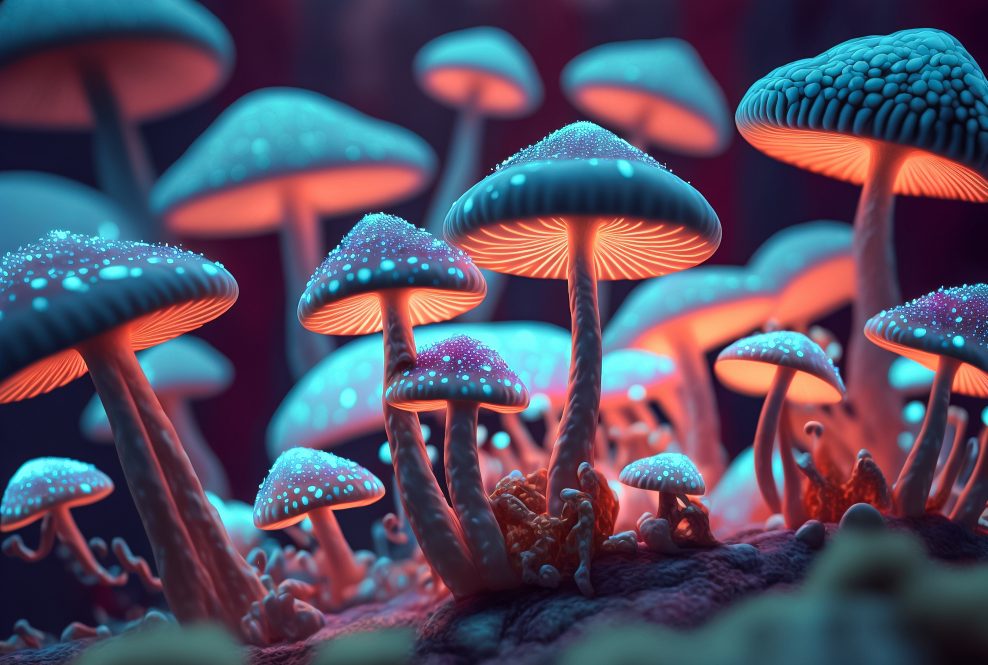In people with advanced cancer, psychedelic drugs like psilocybin, LSD and MDMA may significantly reduce the severity of depression and anxiety symptoms.
Roughly 10% of patients with cancer experience anxiety, while 20% report depression. However, current research suggests that available prescription antidepressants do not significantly decrease depressive symptoms in cancer patients compared with a placebo.
My team and I recently completed a meta-analysis of five clinical trials examining anxiety and depression symptoms in patients with advanced forms of cancer and other life-threatening diseases. We found that taking psychedelic medication alone – specifically LSD, psilocybin or MDMA – reduced depression scores as measured by the Beck’s Depression Inventory by six points, where a score below 10 indicates minimal to no depression and above 30 indicates major depression. The average scores at baseline were between 15 and 18 for most studies, though one trial had a baseline of approximately 30. Psychedelics also reduced anxiety scores as measured by the State-Trait Anxiety Inventory by seven to eight points, where a score of 20 to 37 indicates no or minimal anxiety and a score of 45 to 80 indicates high anxiety. The average scores were between 40 and 55 but approximately 60 in one trial.
In one trial of 51 cancer patients, 60% of those who received a single high-dose psilocybin session achieved clinical remission for depression, and 52% did for anxiety. In comparison, 16% of those who received a placebo achieved remission for depression and 12% for anxiety. These effects were still maintained six months later.
Psychedelics and Trauma
Why would one to two psychedelic therapy sessions be more effective than taking daily prescription medications like fluoxetine (Prozac) and paroxetine (Paxil)?
Receiving a cancer diagnosis and experiencing adverse effects from treatments can be traumatic. In severe cases, patients can develop cancer-related post-traumatic stress disorder.
People who develop PTSD from military service or physical or sexual violence commonly experience depression and anxiety. Research on MDMA-facilitated psychotherapy, in which psychotherapists incorporate psychedelic sessions with traditional counseling, has shown that this treatment approach can effectively reduce PTSD symptoms by allowing patients to be willing and able to share traumatic memories to help process them. These reductions were larger than those seen in studies on prescription antidepressants alone.
Based on this research, my team and I hypothesize that psychedelic sessions might have an advantage over traditional prescription antidepressants for patients with cancer-related depression or anxiety because it may help them deal with their underlying trauma.
Some of the trials in our review noted what patients perceived as the reasons for the reduced anxiety and depression symptoms they experienced. Patients stated that the psychedelic sessions helped them process the intense feelings they were repressing without being overwhelmed. While the catharsis was emotional and difficult, it helped them achieve acceptance of those emotions, lessening their feelings of isolation and inner withdrawal.
Unknowns in Psychedelic Therapy
While these results are promising, there are limitations to the available research that could bias the results. A number of the advanced cancer studies we examined included people with a history of psychedelic use. People with prior positive recreational psychedelic experiences may be more likely to participate in these studies than those who experienced a “bad trip” or were opposed to recreational drugs altogether. Additionally, even though the placebo was made to look identical, it is unlikely that patients or caregivers were fooled if it did not elicit a psychedelic effect.
While past studies have found lackluster benefits from traditional antidepressant medications compared with placebos in PTSD and cancer-induced anxiety and depression, there have not been any clinical trials directly comparing the effectiveness of traditional antidepressants with psychedelics for PTSD or cancer patients. However, one completed early-phase trial that compared psilocybin with the traditional antidepressant escitalopram (Lexapro) in patients with major depression found that 57% of people receiving psilocybin achieved clinical remission, compared with only 28% receiving escitalopram.
Finally, psychedelic sessions caused large increases in blood pressure. This might not be the best treatment for patients with poorly controlled hypertension or with heart disease.
Next Steps for Psychedelics
More research is needed on effectiveness of psychedelics to treat anxiety and depression in cancer patients. Exploring psychedelic treatments for patients with other life-threatening diseases that cause trauma, anxiety or depression could clarify their potential therapeutic benefits.
Were the Food and Drug Administration to approve psychedelics for this kind of use, the agency would need to figure out how these psychedelics can be used legally. As Schedule 1 drugs, they are currently banned from any medical use in the U.S. Researchers must register with the U.S. Drug Enforcement Agency to study controlled substances. However, the FDA has already set a precedent with its June 2018 approval of cannabadiol (Epidiolex) for the treatment of rare childhood seizure disorders, even though this cannabis derivative remains banned by the Drug Enforcement Administration.



